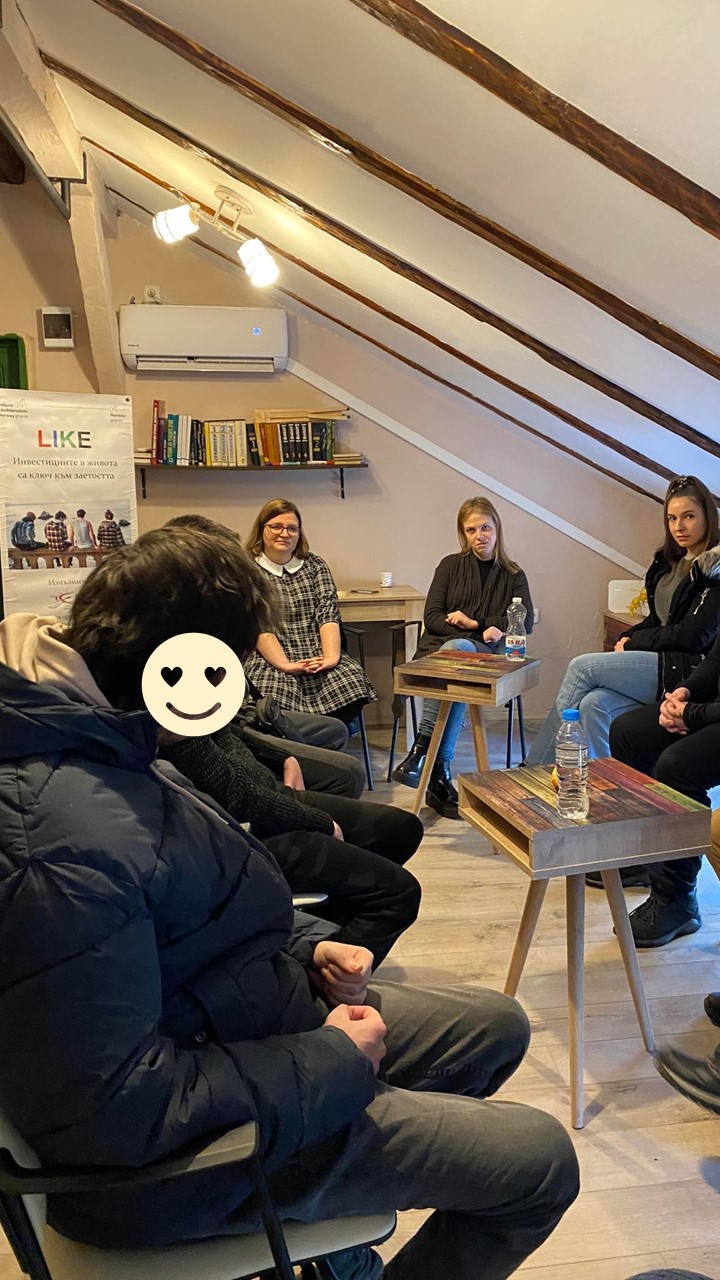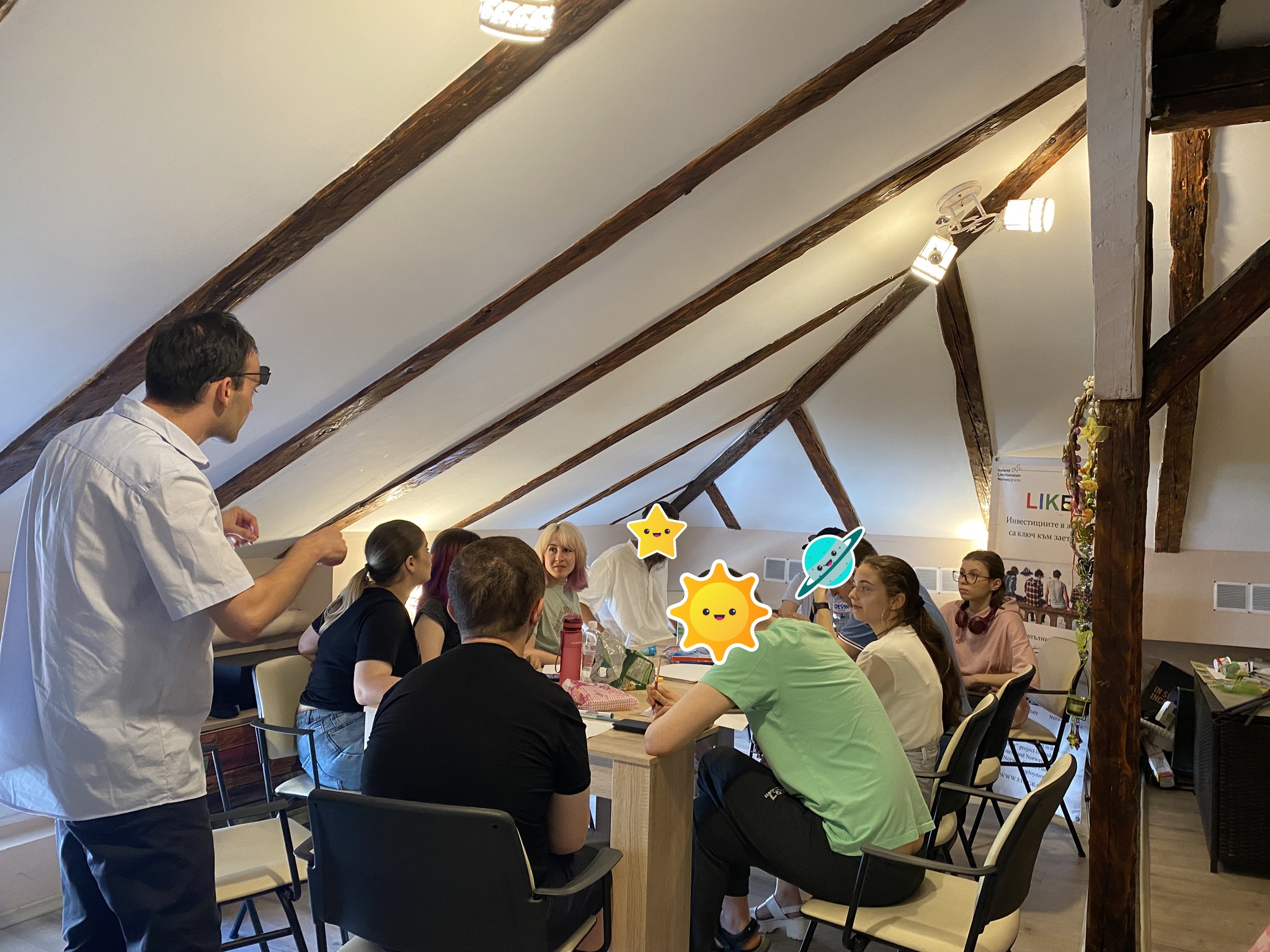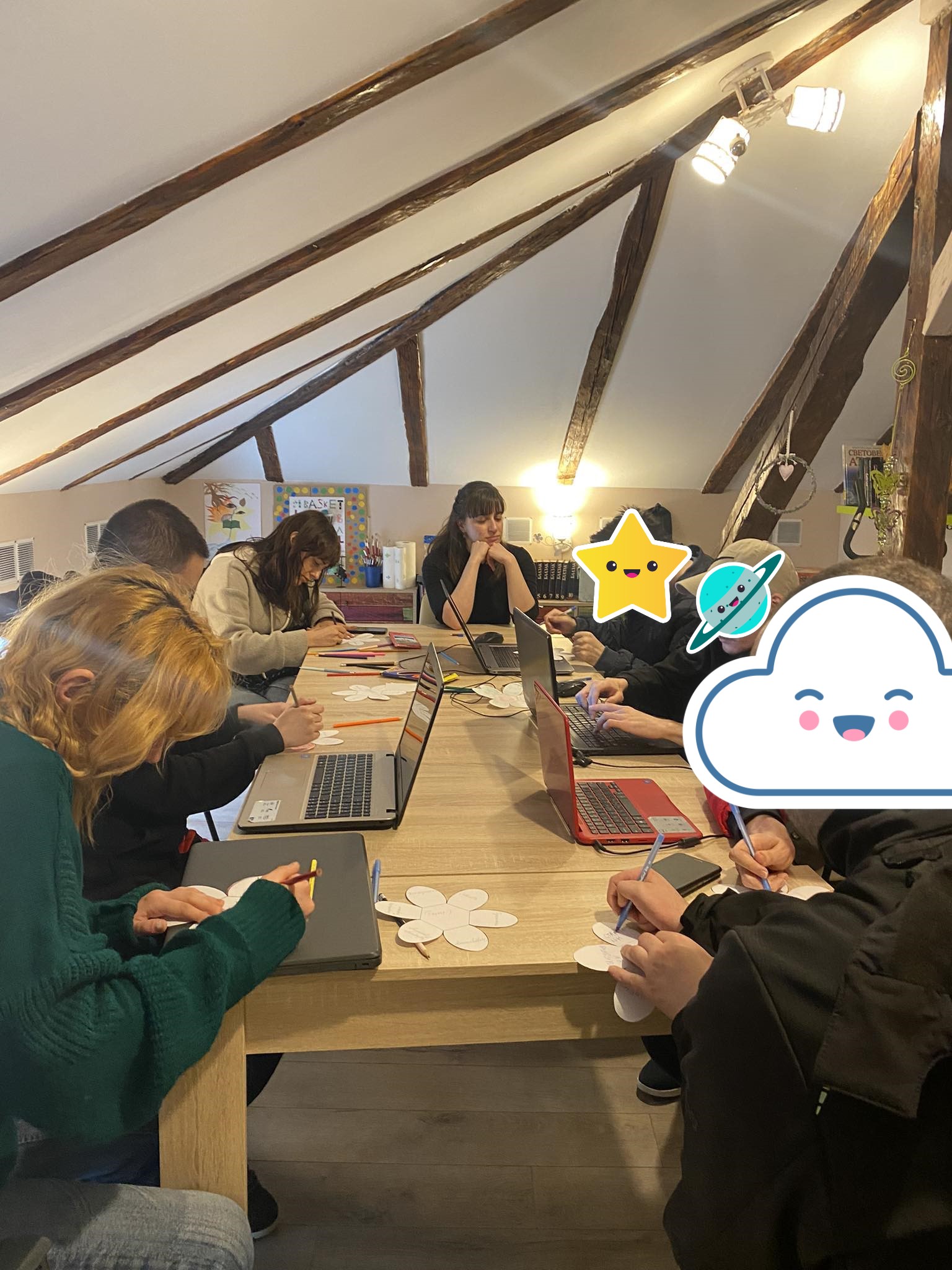Our world has undergone a rapid transformation in recent years, with the pace of change speeding up further. From COVID-19, which created a precedent when the world kept working primarily on digital technologies, to dramatic advancements in the artificial intelligence dimension It became obvious that the era has changed and the qualities required for success have shifted significantly. So has changed our approach to the NEETs with mental health problems, with whom we work in the “Hidden Likes” Youth House in the direction of their integration into the labor market, which ultimately could not be realized if the requirements of the modern age are not taken into account.
Eventually, the foremost skill essential for navigating the digital realm effectively has become digital literacy. This encompasses being well-versed in digital terminology, concepts, and typical digital experiences. Additionally, it involves the ability to interact with AI-generated content while differentiating it from content created by humans. These are skills that we try to encourage and develop in young people with mental problems at the Youth House, realizing that today their successful integration largely depends on the ability to follow the trends towards digitalization.
Certainly, it’s crucial to acknowledge that the demands of the digital world necessitate digital skill development in NEETs. However, while we strive toencourage the development of digital skills in NEETs with mental health challenges through initiatives in the “Hidden Likes” Youth House, it’s essential to remember that this transformation should not come at any cost. We must be mindful of the specific challenges and needs of these young people. Their journey towards digital literacy and integration into the labor market requires a balanced approach that considers their unique circumstances, ensuring that we don’t compromise their mental well-being in the pursuit of digital skills. In other words, while it’s undeniably essential for NEETs with mental health issues to develop digital skills in our rapidly advancing world, our primary focus at Project L.I.K.E remains on breaking the isolation these individuals often face.Social isolation and disconnection can exacerbate mental health challenges, making it even more crucial to prioritize their well-being and sense of belonging. Through our project, we aim to create a supportive community where NEETs feel understood, valued, and connected with peers who share similar experiences. This sense of belonging is the foundation upon which we build, fostering an environment where individuals can not only develop digital skills but also regain their self-esteem, confidence, and a renewed sense of purpose. Ultimately, our goal is to empower NEETs with mental health issues to overcome isolation.
Such a trend toward digitalization began to become obvious as the COVID-19 pandemic disrupted conventional norms and digital skills emerged as the driving force behind success in both the professional and personal realms. The demand for digital skills has surged, prompting employers to seek out individuals who can adeptly navigate the ever-evolving digital landscape.
For young peoplefacing mental health challenges who have disengaged from the education system and employment, and do not possess the qualifications sought by employers, attaining stable and high-quality employment becomes a more intricate task. The inclusion of these individuals in the workforce, despite the complexities imposed by the modern world, is not an insurmountable challenge. However, it necessitates the implementation of appropriate strategies when working with NEETs (Not in Education, Employment, or Training) who arestruggling with their mental health, aiming to cultivate the essential skills required for successful integration into the labor market.
This constitutes the primary objective of the “Hidden Likes” Youth House – enhancing long-term employability through a comprehensive approach. This approach addresses the multifaceted challenges associated with mental health and endeavors to foster crucial soft skills in young individuals, including adaptability and resilience. We firmly believe that, with the right support, young people coping with mental health problems can indeed thrive in the workforce, irrespective of their diagnosis or the duration of their illness. The ability to adapt to change emerges as the pivotal determinant of success, particularly in a rapidly evolving digital landscape.
Our message at the Youth House is encapsulated in the phrase, “Embrace change, remain open to the new, and cultivate agility to maintain relevance.”
In recent years, the arrival of artificial intelligence (AI) and machine learning has ignited a mixture of excitement and concern. While some envision boundless possibilities for business, others grapple with fears about their job security and question their ability to keep pace with technological evolution. This parallels the situation faced by young individuals dealing with mental health issues. The notable strides in technology and the growing integration of technological innovations into the workplace amplify sensations of uncertainty and anxiety among them. They grapple with insecurities regarding their ability to adapt to evolving requirements and changes, all while facing genuine concerns about their job prospects due to the looming threat of automation.
The ascent of AI doesn’t signify the obsolescence of human contributions. Instead, it marks the dawn of a new era characterized by fruitful collaborations between humans and machines, leading to extraordinary achievements. However, for young people contending with mental health challenges, bridging the gap for successful collaboration with rapidly evolving technologies can be a considerable hurdle. They frequently lack the essential digital job skills and knowledge required to navigate the ever-changing technological landscape. Whats more, mental health issues can often lead to heightened levels of anxiety and overwhelm, especially in new and unfamiliar situations. Learning and engaging with digital technology can be a source of stress for these young people, making it harder for them to focus on acquiring digital literacy.
To address this issue, we at the “Hidden Likes” Youth House include the cultivation of digital skills within our program, recognizing their significant role in helping young individuals adapt to the increasingly automated workplace but at the same time prioritize emotional well-being, confidence, and a sense of belonging.
 At the end of the day, to keep up with modern trends and excel in the digital age, it’s not just technical skills that matter. Personal attributes and effective communication are equally vital. This is why Project L.I.K.E Youth House structures its group therapy sessions to provide participants with a valuable opportunity to enhance their communication and collaboration abilities. The capacity to communicate and collaborate effectively is not only essential for personal growth but also forms a robust foundation for success in their future personal and professional pursuits.
At the end of the day, to keep up with modern trends and excel in the digital age, it’s not just technical skills that matter. Personal attributes and effective communication are equally vital. This is why Project L.I.K.E Youth House structures its group therapy sessions to provide participants with a valuable opportunity to enhance their communication and collaboration abilities. The capacity to communicate and collaborate effectively is not only essential for personal growth but also forms a robust foundation for success in their future personal and professional pursuits.
To effectively nurture these critical skills essential for thriving in a diverse range of social and professional contexts, the group therapy sessions at the Youth House are thoughtfully designed to encourage NEETs to openly and proficiently express their thoughts, emotions, and experiences. Through guided discussions and activities, they develop greater proficiency in articulating their ideas and emotions, thereby fostering improved self-expression and self-awareness. Nevertheless, effective communication encompasses more than just verbal expression; it also encompasses active listening. Within the Youth House, NEETs are encouraged to attentively listen to their peers during group sessions, which enables them to grasp diverse perspectives, empathize with others, and respond thoughtfully.
 This underscores a fundamental distinction between humans and artificial intelligence and machines, highlighting one of humanity’s most remarkable advantages: the capacity for effective communication.
This underscores a fundamental distinction between humans and artificial intelligence and machines, highlighting one of humanity’s most remarkable advantages: the capacity for effective communication.
It’s form utmost importance that we approach digitalization with a discerning eye, especially when considering its impact on NEETs with mental health problems. While digitalization offers numerous advantages and opportunities, we must be acutely aware of the potential pitfalls it can pose for this vulnerable and unprivileged group. In some cases, an overemphasis on digitalization may even exacerbate their existing mental health challenges.
The relentless pace of the digital era can inadvertently contribute to feelings of isolation and disconnection, which are often prevalent among NEETs with mental health issues.
 It is our responsibility to strike a balance between harnessing the benefits of technology and safeguarding the well-being of NEETs facing mental health challenges. This entails thoughtful and informed interventions that prioritize their emotional health and resilience in the face of digitalization’s ever-expanding influence. By approaching digitalization with caution and sensitivity, we can ensure that these individuals are not left behind or, worse, harmed by the rapid changes in our increasingly digital world.
It is our responsibility to strike a balance between harnessing the benefits of technology and safeguarding the well-being of NEETs facing mental health challenges. This entails thoughtful and informed interventions that prioritize their emotional health and resilience in the face of digitalization’s ever-expanding influence. By approaching digitalization with caution and sensitivity, we can ensure that these individuals are not left behind or, worse, harmed by the rapid changes in our increasingly digital world.


